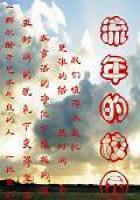Of the Society which was formed in the Rue des Lombards, at the Sign of the Pilon d'Or, to carry out M. d'Artagnan's Idea.
After a moment's silence, in which D'Artagnan appeared to be collecting, not one idea but all his ideas, - "It cannot be, my dear Planchet," said he, "that you have not heard of his majesty Charles I. of England?"
"Alas! yes, monsieur, since you left France in order to assist him, and that, in spite of that assistance, he fell, and was near dragging you down in his fall."
"Exactly so; I see you have a good memory, Planchet."
"_Peste!_ the astonishing thing would be, if I could have lost that memory, however bad it might have been. When one has heard Grimaud, who, you know, is not given to talking, relate how the head of King Charles fell, how you sailed the half of a night in a scuttled vessel, and saw floating on the water that good M. Mordaunt with a certain gold-hafted dagger buried in his breast, one is not very likely to forget such things."
"And yet there are people who forget them, Planchet."
"Yes, such as have not seen them, or have not heard Grimaud relate them."
"Well, it is all the better that you recollect all that; I shall only have to remind you of one thing, and that is that Charles I. had a son."
"Without contradicting you, monsieur, he had two," said Planchet; "for I saw the second one in Paris, M. le Duke of York, one day, as he was going to the Palais Royal, and I was told that he was not the eldest son of Charles I. As to the eldest, I have the honor of knowing him by name, but not personally."
"That is exactly the point, Planchet, we must come to: it is to this eldest son, formerly called the Prince of Wales, and who is now styled Charles II., king of England."
"A king without a kingdom, monsieur," replied Planchet, sententiously.
"Yes, Planchet, and you may add an unfortunate prince, more unfortunate than the poorest man of the people lost in the worst quarter of Paris."
Planchet made a gesture full of that sort of compassion which we grant to strangers with whom we think we can never possibly find ourselves in contact. Besides, he did not see in this politico-sentimental operation any sign of the commercial idea of M. d'Artagnan, and it was in this idea that D'Artagnan, who was, from habit, pretty well acquainted with men and things, had principally interested Planchet.
"I am come to our business. This young Prince of Wales, a king without a kingdom, as you have so well said, Planchet, has interested me. I, D'Artagnan, have seen him begging assistance of Mazarin, who is a miser, and the aid of Louis, who is a child, and it appeared to me, who am acquainted with such things, that in the intelligent eye of the fallen king, in the nobility of his whole person, a nobility apparent above all his miseries, I could discern the stuff of a man and the heart of a king."
Planchet tacitly approved of all this; but it did not at all, in his eyes at least, throw any light upon D'Artagnan's idea. The latter continued:
"This, then, is the reasoning which I made with myself. Listen attentively, Planchet, for we are coming to the conclusion."
"I am listening."
"Kings are not so thickly sown upon the earth, that people can find them whenever they want them. Now, this king without a kingdom is, in my opinion, a grain of seed which will blossom in some season or other, provided a skillful, discreet, and vigorous hand sow it duly and truly, selecting soil, sky, and time."
Planchet still approved by a nod of his head, which showed that he did not perfectly comprehend all that was said.
"'Poor little seed of a king,' said I to myself, and really I was affected, Planchet, which leads me to think I am entering upon a foolish business. And that is why I wished to consult you, my friend."
Planchet colored with pleasure and pride.
"'Poor little seed of a king! I will pick you up and cast you into good ground.'"
"Good God!" said Planchet, looking earnestly at his old master, as if in doubt as to the state of his reason.
"Well, what is it?" said D'Artagnan; "who hurts you?"
"Me! nothing, monsieur."
"You said, 'Good God!'"
"Did I?"
"I am sure you did. Can you already understand?"
"I confess, M. d'Artagnan, that I am afraid - "
"To understand?"
"Yes."
"To understand that I wish to replace upon his throne this King Charles II., who has no throne? Is that it?"
Planchet made a prodigious bound in his chair. "Ah, ah!" said he, in evident terror, "that is what you call a restoration!"
"Yes, Planchet; is it not the proper term for it?"
"Oh, no doubt, no doubt! But have you reflected seriously?"
"Upon what?"
"Upon what is going on yonder."
"Where?"
"In England."
"And what is that? Let us see, Planchet."
"In the first place, monsieur, I ask you pardon for meddling in these things, which have nothing to do with my trade; but since it is an affair that you propose to me - for you are proposing an affair, are you not? - "
"A superb one, Planchet."
"But as it is business you propose to me, I have the right to discuss it."
"Discuss it, Planchet; out of discussion is born light."
"Well, then, since I have monsieur's permission, I will tell him that there is yonder, in the first place, the parliament."
"Well, next?"
"And then the army."
"Good! Do you see anything else?"
"Why, then the nation."
"Is that all?"
"The nation which consented to the overthrow and death of the late king, the father of this one, and which will not be willing to belie its acts."
"Planchet," said D'Artagnan, "you argue like a cheese! The nation - the nation is tired of these gentlemen who give themselves such barbarous names, and who sing songs to it. Chanting for chanting, my dear Planchet; I have remarked that nations prefer singing a merry chant to the plain chant. Remember the Fronde; what did they sing in those times? Well, those were good times."
"Not too good, not too good! I was near being hung in those times."
"Well, but you were not."
"No."
"And you laid the foundations of your fortune in the midst of all those songs?"
"That is true."
"Then you have nothing to say against them."















